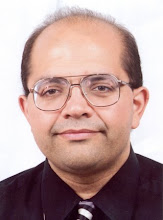How does one combat zealousness?
I have family members who are mentally mired in very negative renditions of American Pentecostalism and now a few have fallen into American Neo-Puritan groups. None of these groups can survive rational review from any credible historical source be it secular or Christian so why are they continuing to grow in membership and why do the members continue to push themselves farther into the muck the more ridiculously asinine and caustic the “doctrine” becomes? I am well aware of psychological explanations of learned helplessness and cognitive dissonance, but they just do not seem to go far enough to explain this particular form of zealous self debasement.
e.g. American Neo-Puritan groups
http://www.rbthieme.org/
http://www.joegriffin.org/
http://www.joegriffin.org/40procs/GraceDoctrineChurch40Procs.pdf
These folks claim to recognize no extra-Biblical experiences yet claim basic doctrines such as the Trinity, Creation, Biblical inerrancy, etc. all of which can only be drawn from biblical scripture if one weaves into their readings the writings and interpretations of historical characters within Christianity; none of whom is well represented prior to the second century AD.
I am oft met with resistance when I deem Thieme and his lot Neo–Puritans; yet, they say nothing that is short of regurgitated Puritan ‘Pentland Rebel’ doctrine.
e.g.
http://www.the-highway.com/Lordsprayer8_Traill.html
The Lord’s Prayer
SERMON VIII.
JOHN xvii. 24.
By: Robert Traill
Author:
Robert Traill (1642-1716): Friend of William Guthrie of Fenwick, attendant of James Guthrie of Stirling on the scaffold, son of the Greyfriars Church manse where the 1638 Covenant was signed, Scot ordained in England, exile in Holland, prisoner on the Bass Rock, scholar, preacher and saint — Robert Traill lived to span the ripest period of the Puritan age. Distinguished in the classes at Edinburgh University, Traill early felt the inner constraint to preach Christ. Too intimate an association with the younger John Welsh drew the swift displeasure of the civil arm upon him. Denounced as a ‘Pentland Rebel’ he fled to join the bright galaxy of British divines weathering the storm of Stuart Absolutism in the Low Countries (1667).
Traill’s literary output began there. As assistant to Nethenus, professor at Utrecht, he prepared Samuel Rutherford's Examination of Arminianism for the press. Back in London in 1692 he took up his pen, as Isaac Chancy (Owen’s successor) and the younger Thomas Goodwin were having to do, to defend the doctrine of Justification against the new Legalism. After serving Presbyterian charges in Kent and London he died at the age of 74.
Application excerpt:
The text we have before us, is about the beholding of Christ’s glory in heaven. I have been shewing you, that it is simply necessary to any right understanding of this great bliss, that a man do know, in his experience, somewhat of the beholding of Christ’s glory by faith in this life. Without this, no words that men can speak about this, can be understood by natural men 1 Cor. ii. 14. For the natural man receiveth not the things of the Spirit of God; for they are foolishness unto him: neither can he know them, for they are spiritually discerned. I may truly say, that no natural man doth, or can understand this verse. It is grievous and shameful, to see and read what blundering confused work many wise and learned men, but destitute of that mind and Spirit of Christ that led Paul in writing of it, make of this verse; when it is plain and bright, though deep, to every ordinary Christian. Now, the glory of Christ, and the beholding of it, are of the deepest of the deep things of God, ver. 10. How then can a natural man receive them, know them, or discern them? He is without that spiritual faculty by which only they can be rightly entertained. It is a dangerous and hurtful practice to the church of God, to the souls of men, and to the truths of God (and not a few are guilty of it, and many smart by it), for men to endeavour to bring down the deep mysteries of the gospel unto the sense and gust of a natural unrenewed man. It is sure, that they that teach, should teach plainly; and they that write, should make the vision plain, that he may run that readeth it, Hab. ii. 2. But they must still speak, or write, as the oracles of God, 1 Pet. iv. 11. and as stewards of the mysteries of God, 1 Cor. iv. 1. If, as it is undoubted, we cannot bring up the natural man’s understanding unto the deep things of God; we must not essay to bring down the depths of God unto their natural blindness. This were to degrade the things of the Spirit of God, and to delude the sinner. But let us study to declare God’s mind in his word, as plainly as we can, to natural men that hear us; and withal tell them, that the things themselves, of which we speak as plainly as we can, are beyond their reach; that they may know that the things of God are deep, and they themselves are blind, till the Spirit of Christ open the understanding, and open the scriptures unto them; as he did to his disciples, Luke xxiv. 32, 45.
Thursday, March 29, 2007
Subscribe to:
Post Comments (Atom)

No comments:
Post a Comment